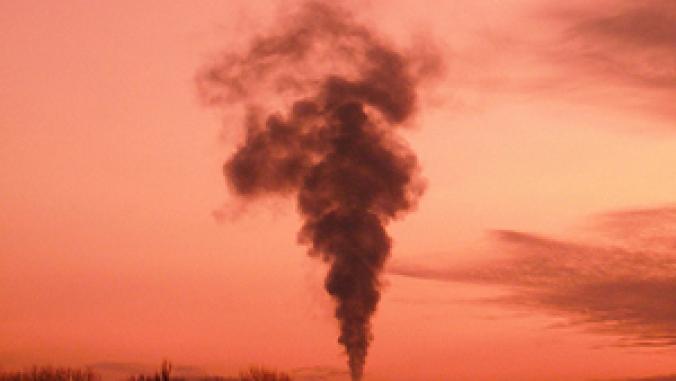Latest Climate Bill Study Finds Environmental Gains, Modest Costs
<p>The latest analysis from the U.S. Environmental Protection Agency shows the most recent climate change bill working through Congress would have a modest impact on U.S. households, costing each an average of $79-$146 a year.</p>

The latest analysis from the U.S. Environmental Protection Agency shows the most recent climate change bill making its way through Congress would have a modest impact on U.S. households, costing each an average of $79-$146 a year.
But the analsyis of the American Power Act, sponsored by John Kerry (D-Mass.) and Joseph Lieberman (I-Conn.), doesn't factor in the benefits of addressing climate change, such as the avoided costs of climate change-related damages.
A separate study from the ClimateWorks Foundation estimated the bill would increase employment levels by 440,000 between 2012 and 2020, with 45 percent fewer emissions by 2030 compared to a business-as-usual scenario.
“This definitive analysis proves that the American Power Act will decrease energy bills for families and protect consumers while offering the most effective cost containment measures of any previous climate legislation,” the Senators said in a joint statement Tuesday. “The results of inaction speak for themselves as we send $100 million a day to Iran and our waters and coastlines are ravaged by the spill in the Gulf."
The EPA released the findings Tuesday, the same day President Barack Obama addressed the nation from the Oval Office for a status report on the BP oil spill. In the speech, Obama used the incident to highlight the need to move the U.S. economy away from fossil fuels.
"Now, there are costs associated with this transition," Obama said in the speech. "And there are some who believe that we can’t afford those costs right now. I say we can’t afford not to change how we produce and use energy -– because the long-term costs to our economy, our national security, and our environment are far greater."
The use of international carbon offsets will help to keep costs low, the EPA found, pegging the price of one metric ton of carbon dioxide-equivalent at $16-17 in 2013, and at $23-24 in 2020 under APA. APA allows up to one billion tons of international offsets per year.
It would include massive subsidies for nuclear power generation, carbon capture and storage technology development, and natural gas, while also using proceeds from a cap-and-trade program to heavily shield consumers and low-income households. Industry experts predicted when the draft was released that the bill it could be the best climate deal businesses will get. Its costs to consumers are in line to the more aggressive Waxman-Markey bill passed by the U.S. House of Representatives last summer, which is estimated to cost U.S. households $74 to $117 dollars per year.
The APA aims to reduce emissions 17 percent below 2005 levels by 2020, and by 80 percent by 2050. The Group of Eight (G8) nations agreed last year to reduce their emissions to 80 percent or more by 2050, with the overarching goal of halving total global emissions by that time. This is under the assumption that developing countries cap emissions in 2015 and reduce emissions 26 percent below 2005 levels by 2050.
The EPA analysis found there was virtually no chance of keeping temperature rise below 2 degrees in a business-as-usual scenario without any climate policy changes. Instead there was a 32 percent chance temperatures would increase by more than 4 degrees Celsius.
If the U.S. and other G8 nations follow through on their commitments, the chances of keeping temperature change below 2 degrees Celsuis in 2100 increase to 75 percent.
In a nod to concerns that U.S. action would be pointless without China and India committing to emissions reductions, the EPA calculated that the chances of keeping temperature rise below 2 degrees Celsius would be about 11 percent if the APA went into effect but developing countries took no action.
"If Congress irresponsibly refuses to back up the commitments the administration made at the G8 and in Copenhagen, we would send a signal to other countries that inaction is acceptable -- and we would lock in some of the worst effects of global warming," Kevin Knobloch, president of the Union of Concerned Scientists, said in a statement. "The EPA's analysis shows we're already perilously close to exceeding a 2 degree Celsius global temperature increase, which the world community set as a goal to avoid devastating consequences. As the global temperatures go up, so would the pain."




